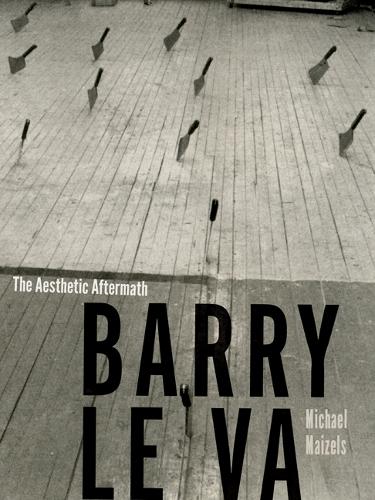
Barry Le Va: The Aesthetic Aftermath
(Paperback)
Available Formats
Publishing Details
Barry Le Va: The Aesthetic Aftermath
By (Author) Michael Maizels
University of Minnesota Press
University of Minnesota Press
1st December 2015
United States
Classifications
General
Non Fiction
Non-graphic and electronic art forms
Individual artists, art monographs
709.2
Physical Properties
Paperback
224
Width 152mm, Height 203mm, Spine 25mm
Description
Of the conceptual artists who began their careers in the 1960s and 1970sBruce Nauman, Chris Burden, Vito Acconci, and Mel Bochner among themBarry Le Va may be the most elusive. As this first study of his work reveals, his rigorously planned art was instigated to mask its creators intentions and methods, presenting itself as an aftermath of modernisms claim to permanency and civil societys preferred mode of monumentalism.
For Michael Maizels, Le Vas work constitutes a particularly productive subject of inquiry because it clearly articulates the interconnection between the avant-gardes distrust of autonomous art objects, two decades of social unrest, the emergence of information theory, and lingering notions of scientific objectivity. Barry Le Va: The Aesthetic Aftermath explores how Le Va used such materials as shattered glass, spent bullets, sound recordings, scattered flour, and meat cleavers embedded in a floor to challenge the interlocking assumptions behind blind faith in lasting beauty, just government, and perfectible knowledge. Taking inspiration from popular crime novels as well as contemporary art theory, Le Va charged his viewers to attempt, like detectives at a crime scene, to decipher an order underlying the apparent chaos.
Le Vas installations were designed to erode not simply the presumed autonomy of the art object but also the economic and political authority of the art establishment. In his concluding chapter, Maizels looks at the more fixed work of the past two decades in which Le Va turned to architectural themes and cast concrete to probe the limits of dynamism and the idea of permanence.
Reviews
"Barry Le Va adds to already excellent scholarship on compatriots Robert Morris and Bruce Nauman, reintroducing an unduly neglected artist, while interrogating why Le Va occupies the position he does in contemporary art."Erika Suderburg, University of California
Author Bio
Michael Maizels earned his PhD in art history from the University of Virginia. He is Mellon New Media Curator/Lecturer at the Davis Museum of Wellesley College.
